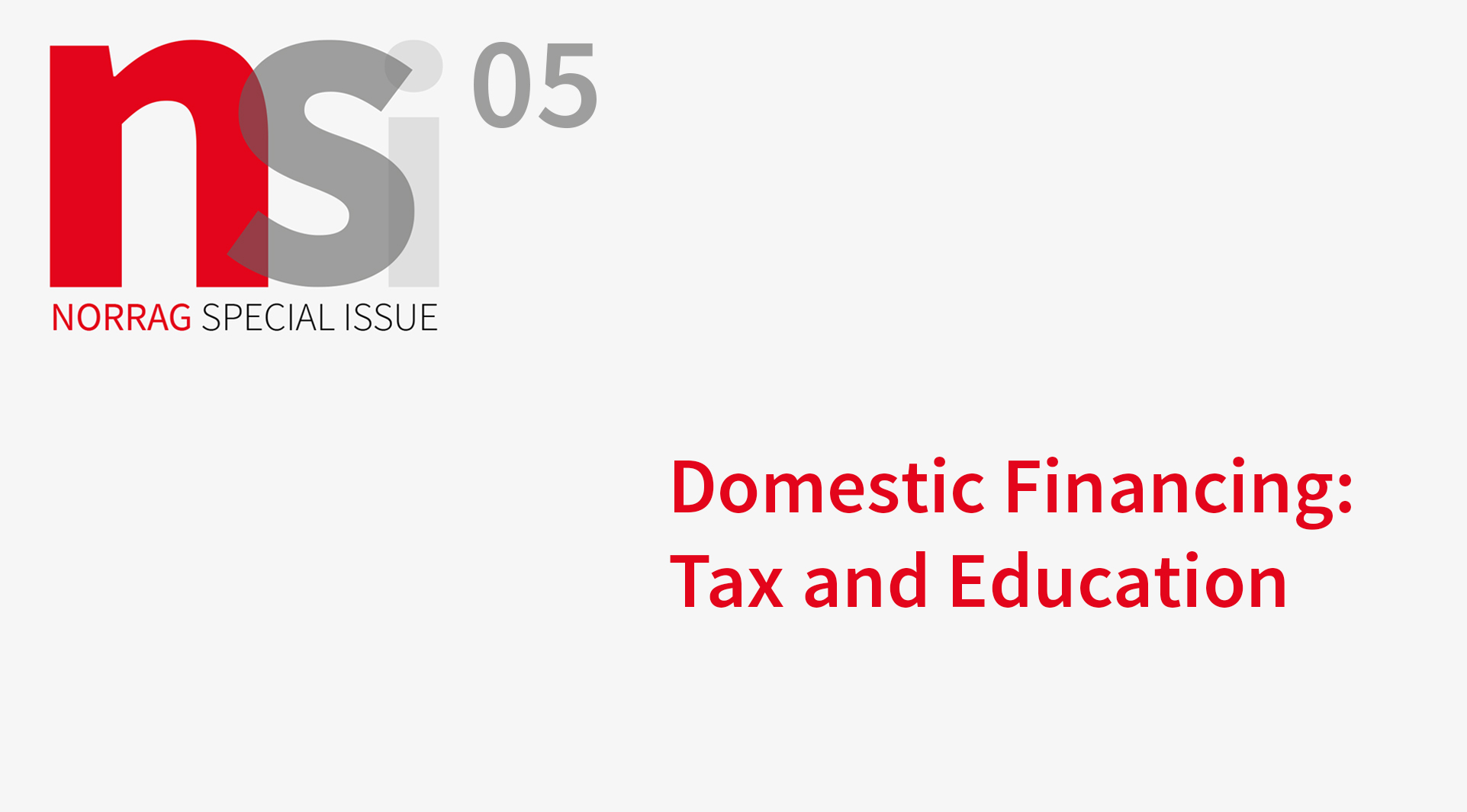Call for Contributions – NORRAG Special Issue 05 Domestic Financing: Tax and Education
Deadline extended: NORRAG, an associate program of the Graduate Institute of International and Development Studies, Geneva, Switzerland, invites specialists and stakeholders interested or involved in the domestic financing of education (and in particular on tax and education) to contribute to NSI 05 – on Education and Tax.
The contributions are expected to be short pieces (typically around 1200-1500 words) or multimedia material that can speak to a wider audience of policymakers, academics, researchers, civil society organizations, and other actors working on education.
Articles should be submitted in English but if you wish to send one in French or Spanish please contact us to let us know.
As a first step we would like you to indicate your interest in writing a short article by sending us a short abstract by 15th April – with no more than 250 words. This will help us to ensure that we get a good balance of articles from different contributors in different regions. We will then get back to you by the end of March and would want to receive the first draft of articles themselves by the end of April. We will then work with all selected authors to revise and finalise articles through May and June with view to editing and compiling for publication in September / October.
In the wake of the SDG 2030 agenda, demands for alternative sources of finance for funding educational development have come up. A recurring theme is tax justice both in the global North and in the global South. Whereas NSI 04 addresses the topic of tax justice in the global North as part of the debate surrounding new philanthropy in education, NSI 05 is entirely devoted to tax justice and domestic resource mobilization for education in the Global South.
Substantial amounts of financial resources for supporting educational development are lost through tax loopholes and tax evasion in low- and lower-middle income countries. How much domestic revenue is lost, what are the reasons for the loss, and what are the main challenges, as well as opportunities, for improving the situation? What does it take for developing countries to build effective and fair tax systems to finance education and other public services? How can the case for progressive investment in education help make the case for progressive tax reforms? How can we most effectively maximise the connections between tax and education in order to achieve the SDG 2030 goals?
POSSIBLE SECTIONS AND INDICATIVE ISSUES
The following are indicative ideas. Please flag if you wish to contribute an article that connects with one or more of these, but please do not feel restricted to the list below if you have a compelling article to write make the case for it in an abstract! Your article might address just one part of one of these and ideally should include specific examples.
- How domestic financing and tax justice can contribute to achieving SDG4 – what are the connections and what are the key issues and indicators to analyse?
- Consequences of weak tax systems and tax avoidance for investment in education – the impact for example of illicit financial flows, tax incentives, aggressive avoidance
- Positive examples of the transformation of tax systems that have increased revenue for education – particularly where tax reforms have been progressive
- Earmarking taxes for education – examples of full or partial earmarks and their advantages and disadvantages
- Understanding the gender dimensions of tax and education
- Fiscal decentralization and education decentralisation – exploring connections and implications
- The links between tax and wider domestic finance issues which affect investment in education such as debt, macroeconomic policies, wage bill containment
- How better global and regional cooperation on tax could contribute to increasing domestic tax bases to better finance education
- Raising tax awareness as an education process in itself – in school curricula, adult and popular education processes etc.
- Movement building on tax and education: examples from national, regional or global levels of mobilisation and alliances across these sectors
- What global actors could and should be doing to link tax and education: the role of the IMF, World bank, Global Partnership for Education, International Financing Facility, Education 2030 and other actors
These are our initial ideas. We anticipate that many people will have additional ideas or ideas that connect different threads above. Please send us your abstracts and let us start a dialogue on how we can produce a special edition of NORRAG that could represent a breakthrough on domestic financing of education!
Guest Editor: David Archer – Head of Public Services, ActionAid david.archer@actionaid.org
Deadline for submission of abstracts 15th April 2020,
Deadline for first draft of full articles: 15th May 2020

